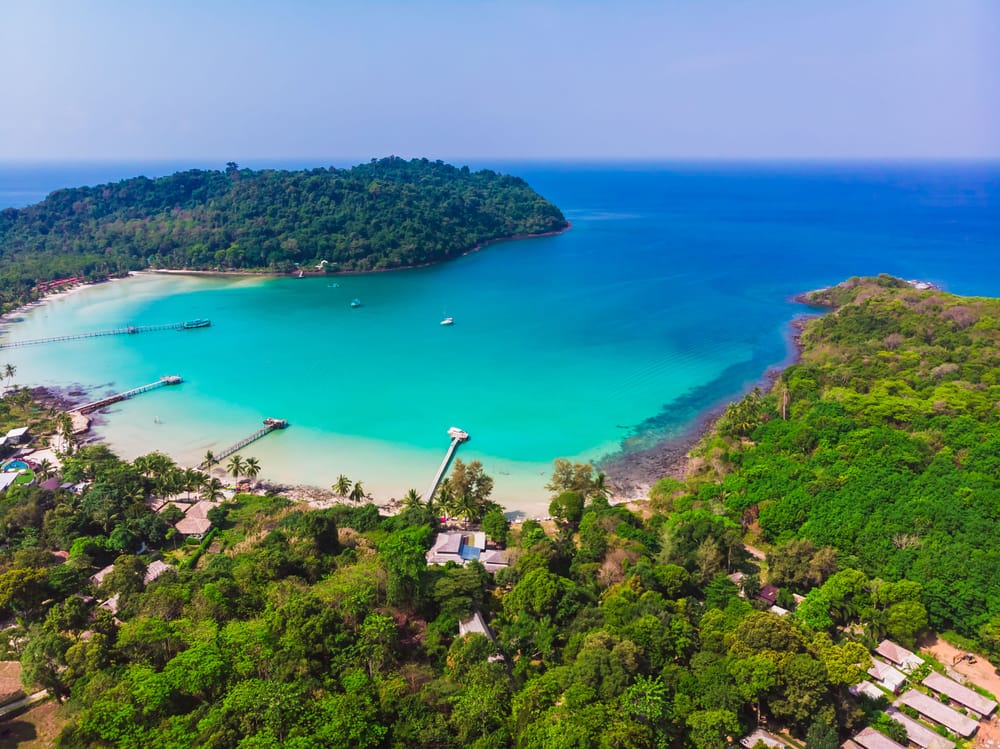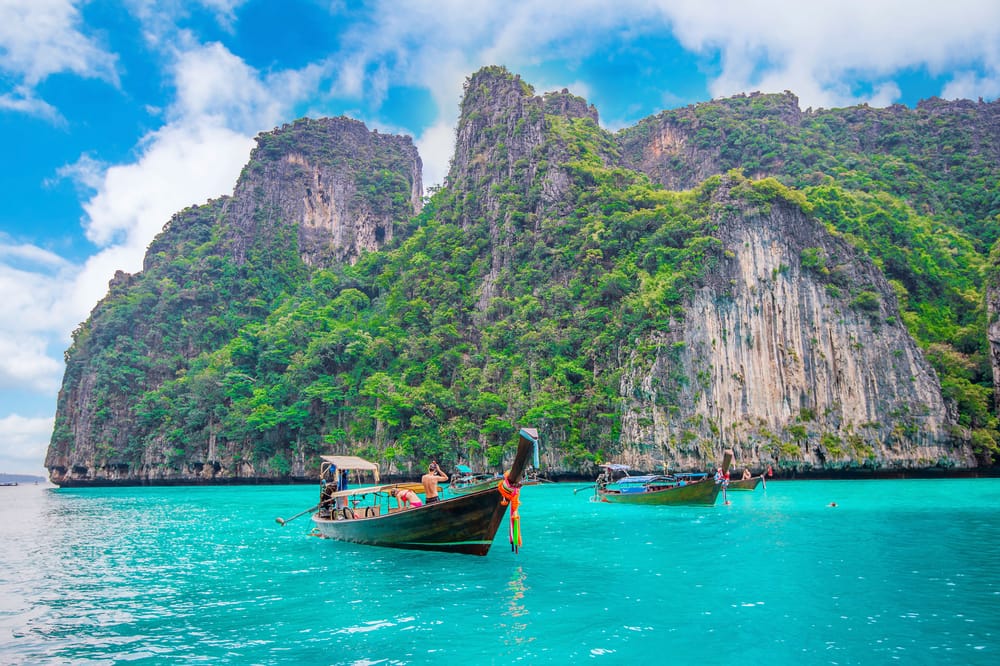Land for Sale in Koh Samui What to Know Before You Buy

Land for Sale in Koh Samui What to Know Before You Buy
Nestled in the azure waters of the Gulf of Thailand, Koh Samui is more than just a tropical paradise. It has evolved into one of Thailand's premier real estate investment destinations, combining its breathtaking natural beauty with a thriving property market. From pristine beaches and serene coconut groves to luxurious hillside retreats, Koh Samui offers a blend of lifestyle and opportunity that appeals to investors, expatriates, and developers alike.
However, purchasing land in Koh Samui is no small feat and requires careful planning, research, and understanding of the island's unique market dynamics. Whether you're dreaming of building a private villa overlooking the sea or developing a boutique resort, this guide covers everything you need to know about buying land on this idyllic island.
The Koh Samui Real Estate Market Overview
Koh Samui’s real estate market is thriving, fueled by its unparalleled charm and growing demand from international investors. Here’s why property investment in Koh Samui is rapidly gaining traction:
Factors Driving Real Estate Growth in Koh Samui
Tourism Impact
Koh Samui is one of Thailand’s most popular tourist destinations, welcoming millions of visitors each year. This steady influx of tourists has led to high demand for hospitality and residential properties, making it a hotspot for rental and development opportunities.
Natural Beauty around Koh Samui
The island offers lush rainforests, secluded beaches, and vibrant marine life. These landscapes create a dreamlike canvas for investors eager to combine luxury with nature.
Limited Supply of Land
With a finite amount of buildable land, particularly in prime locations, Koh Samui is experiencing an upward trend in land prices. Scarcity makes timely investments highly lucrative for those seeking appreciation over time.
Investment Opportunities to Explore in Koh Samui
The real estate market caters to varied goals:
Beachfront Properties for those seeking high-end developments.
Hillside and Garden View Lands for serene private homes.
Commercial Spaces for business owners entering Koh Samui’s bustling hospitality industry.
Legal Considerations Foreign Buyers Must Know in Koh Samui
Navigating Thailand’s property laws can be complex for foreign buyers. Understanding the legal framework is crucial to a successful and secure purchase.
Restrictions on Foreign Ownership in Koh Samui, Thailand
Thai law prohibits foreigners from directly owning land. However, there are alternative paths:
Long-Term Leases
Foreign investors can secure land through leases typically valid for 30 years, with extensions available for up to 90 years.
Setting Up a Thai Company
Ownership through a locally incorporated company is another option, albeit with strict compliance requirements.
Prioritize Legal Support
Given the complexities, consulting a qualified real estate lawyer familiar with Thai property law is a must. They can guide you through due diligence, paperwork, and potential risks, ensuring a smooth transaction.
Types of Land Title Deeds in Koh Samui
Thailand categorizes land under various titles, each offering different levels of ownership rights and security. Here are the key types to consider:
Chanote (Nor Sor 4 Jor): A freehold title offering the most precise and strongest ownership rights. Recommended for significant investments.
Nor Sor 3 Gor: Allows for land use and conversion to Chanote but offers less clarity on boundary precision.
Nor Sor 3: Also permits usage but involves greater risks due to less formal designations and potential disputes.
Avoid titles like "Por Bor Tor 5" or "Sor Kor 1" as they lack full legal protection and cannot be sold or transferred freely.

Popular Locations and Property Types in Koh Samui
Koh Samui offers diverse locations and property types, ensuring there’s something for every investor’s vision.
Chaweng
Why Choose It: Renowned for its vibrant nightlife, bustling markets, and tourist-friendly atmosphere.
Ideal For: Commercial investments or rental properties catering to holidaymakers seeking action-packed stays.
Bophut
Why Choose It: Home to the historic Fisherman’s Village, Bophut combines local charm with boutique luxury.
Ideal For: Upscale residential or hospitality developments.
Lamai
Why Choose It: Quieter than Chaweng, with beautiful beaches and laid-back vibes.
Ideal For: Private villas and wellness retreats.
Beachfront vs Hillside Properties
Beachfront: Offers direct access to Koh Samui’s iconic beaches but comes with premium price tags and environmental restrictions.
Hillside: Provides stunning panoramic views and privacy at a more affordable cost, albeit requiring careful evaluation of access and terrain.
Due Diligence Is Crucial
Before you finalize a land purchase, ensure you’ve completed the necessary due diligence steps:
Land Surveys: Verify boundaries using GPS technology, especially for Chanote-titled properties.
Zoning Regulations: Check for permitted land usage to avoid restrictions on developments.
Environmental Impact Assessments: For large-scale projects, this is often mandatory to ensure compliance with local regulations.
Exploring Financing Options property
Unlike some countries, financing options are limited for foreigners. However, there are pathways to consider:
Local Thai Banks for expats with work permits or Thai spouses.
Private Loans through local lenders, often requiring higher interest rates.
International Financing which can provide tailored mortgage solutions for overseas property buyers.
Thai Property Taxes and Fees in Koh Samui
Understanding costs beyond the land price is essential for budgeting effectively:
Transfer Fees: Typically 2% of the appraised value, shared between buyer and seller.
Stamp Duty: 0.5% of the registered value.
Annual Property Tax: Minimal for private residences but higher for commercial properties.
Making an Informed Decision in Koh Samui
Purchasing land in Koh Samui offers an incredible opportunity to invest in one of Thailand’s most desirable destinations. From its booming tourism industry to its breathtaking vistas, the island has undeniable appeal. However, due diligence, legal guidance, and strategic planning are key to avoiding pitfalls along the way.
Planning to start your Koh Samui property investment? Consult experts who are deeply rooted in the local real estate market to turn your dream of owning a piece of paradise into reality.

